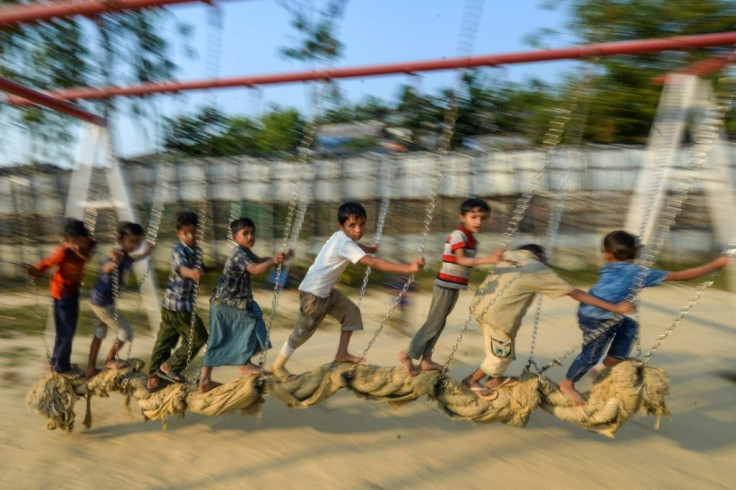Duterte Says Philippines Willing To Accept Rohingya Muslim Refugees

KEY POINTS
- Rodrigo Duterte said he was ready to accept persecuted Rohingya Muslims into the Philippines
- "I am prepared. I have communicated my desire that if the Rohingya in Burma want to migrate, I will accept them," he said
- Rohingya Muslims are an ethnic Muslim minority who have suffered greatly at the hands of the Buddhist majority in Myanmar
Philippine President Rodrigo Duterte emphatically expressed his willingness to accept persecuted Rohingya Muslims into the Philippines to begin their lives anew. He also pressed upon Malaysia and Indonesia whose populace is largely Muslim to do the same.
Duterte was in Cotabato City to make a speech and pass out Certificates of Land Ownership Awards (CLOAs) to various groups. The city’s population is about 75 percent Muslim compared to about 25 percent of the population of the southern region of Mindanao, where most of the country’s Muslims live. Of the total Philippines' predominately Catholic population, Muslims make up about 6 percent.
In the speech Duterte said, “I am prepared. I have communicated my desire that if the Rohingya in Burma want to migrate, I will accept them.”
The Rohingya Muslims are an ethnic Muslim minority who have suffered greatly at the hands of the Buddhist majority in Myanmar (formerly Burma) including incidents of gang rape of women and massacres by the military that have resulted in about 10,000 deaths.
They have been refused citizenship in Myanmar rendering them a “stateless” group. Most of the approximately one million Rohingyas have escaped to other countries with most of the refugees ending up in Bangladesh living in squalid conditions.
In his speech, Duterte pointed out that the Rohingya people are not accepted in Burma because of their religion saying, “They’re from Sri Lanka, then they migrated (to Burma) ... but they are unwanted because the people there are Buddhists ... They (Rohingya people) are Muslims so they’re being executed. So, they became boat people and went to Australia. When they got there, Australia pushed them back (to Myanmar).”
The president expressed his solidarity with the Rohingya Muslims and willingness to accept them in the Philippines when he added, “We have big lands. The people there are pitiful, the Muslims. Let’s take them in. Mindanao is big, there are fields where they can farm . . . Let’s teach them how to survive. We will accept the Rohingya refugees.”
This is not the first time that Duterte has commented about helping the refugees. In a February speech before a convention of municipal mayors in Manila, he made them an offer of Filipino citizenship. He said, “Those who really have nowhere else to go, I will accept them. I will make them Filipinos.”
In yet another speech from April of 2018 Duterte said he was willing to provide sanctuary for Rohingya fleeing what he called “genocide” in the "Rakhine State". While the term may accurately describe the events in southwest Myanmar, he apologized to State Counsellor of Myanmar Aung San Suu Kyi over his use of the term.
Once a victim of persecution from a former Myanmar regime and a 1991 Nobel Peace Prize winner, Aung San Suu Kyi is acting like a ruthless dictator herself by refusing to condemn the powerful military or acknowledge accounts of their atrocities. This has led to some criticism by human rights activists. Duterte is also accused of some human rights abuses over his war on drugs that he may eventually have to face after his six-year term ends in 2002.
© Copyright IBTimes 2024. All rights reserved.




















